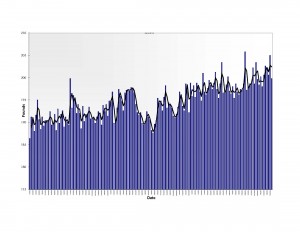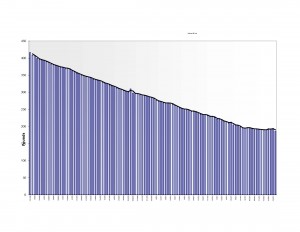Back in May 2015, I was hovering around 200 lbs., but after my shoulder surgery, that ballooned to 225 lbs. by the end of 2015. I have basically maintained that weight for 2 years, although I have been constantly attempting to get down to the 190 lbs range, which I weighed for 3 years following my 236 lb. weight loss (from 400+ lbs. to 180’s/190’s lbs.) in 2010 and 2011. The shoulder surgery, to repair my rotator cuff, really put a wrench in my weight maintenance program, and I am now hoping to get back to where I was, and provide me a buffer should I suffer further injuries that might effect my weight.
However, now I am ready to again attack my current weight, which was 224 lbs. as of this past Saturday, and am looking to lose 30 lbs. by the end of the year, so my weight will again be in the 190 lbs. range. Part of what is driving this push is that I again want to fit into my tuxedo, which I purchased in 2011. So what has been lacking up to this point, and what am I going to do?
The way I see it, it was a matter of focus, determination, drive, sacrifice, strategic thinking, and discipline that helped my lose the weight in the first place, and that is what I need to bring back to my daily routine. Doing it a second time is more challenging, since it is harder to find the motivation a second time around, particularly, since the weight loss this time around is not as dramatic. Also, my body is more efficient, so it takes a greater push to overcome that barrier. Exercise is not the issue for me, as I exercise at least 2 hours/day, 7 days a week, and my exertion level is quite high. This time, I need to focus more on the input of food to make a difference.
As I have discussed previously, growing up, eating lots of food was a daily occurrence, so I inherently do not have great portion control. So what I have now again started to do is use smaller plates, this way, my portion size has to be reduced, as it would not otherwise fit on the smaller plate. In addition, I am now setting up a more specific goal, losing 30 lbs. by the end of the year, to help focus me at the task at hand, and keep me accountable. Also keeping me accountable will be this blog, which I will periodically update with my progress, so that is another form of accountable, in this case, a public one. Lastly, I have added yoga classes to increase my flexibility and core strength, and am receiving physical therapy on my left knee, which has a little bit of arthritis, and both the yoga and the physical therapy, and helping me to be less sore, and to be more athletic. I will keep you posted, and hopefully sharing this journey will help others in their maintenance and weight loss issues.




